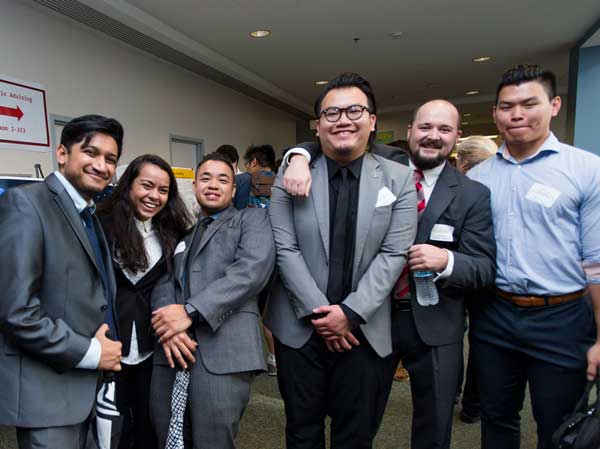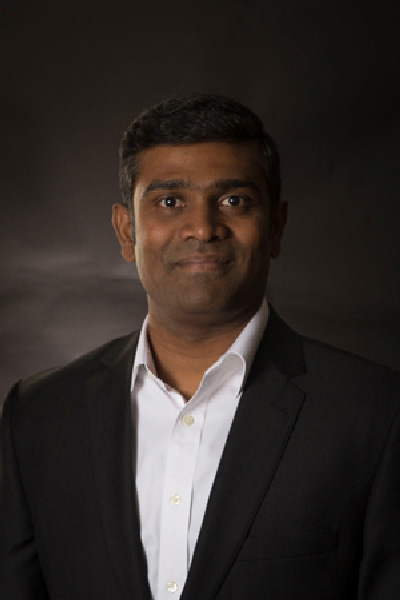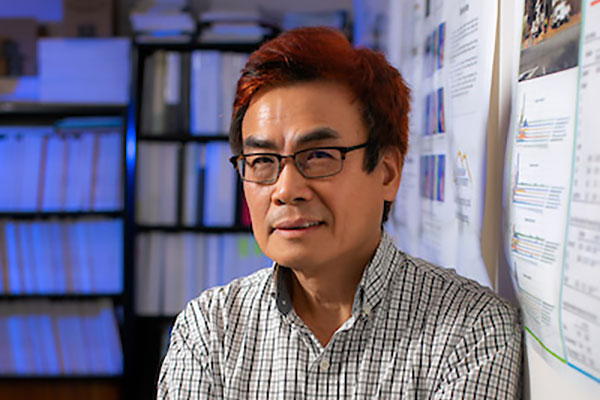
Data Impact
MARIETTA, Ga. | Dec 14, 2018

At 15, Walker-Holmes was introduced to research when she participated in a summer advanced college prep program at Kennesaw State. Funded by the National Aeronautics and Space Administration (NASA), the initiative’s primary focus was to familiarize high school students with the possibilities of careers in science, technology, engineering, and math (STEM) fields.
“I was inspired to pursue research because it affords us the opportunity to take what we’ve learned in school or in a company and apply it to creating something meaningful,” she said. “Research causes us to push ourselves to drive impactful change within our prospective fields and the world.”
Walker-Holmes, who earned a degree in information technology this week, credits her diverse undergraduate experiences and collaboration with companies such as Google, IBM and ADP for helping her put theory into practice in progressive computing fields such as data science.
Although she originally aspired to become a physicist upon enrolling at KSU in 2015, she discovered a passion for studying human factors and solving real-world problems using data science. With the support of faculty mentors in the University’s College of Computing and Software Engineering and the experience of participating in the Peach State Louis Stokes Alliance for Minority Participation at KSU, Walker-Holmes said she gained confidence to present and publish her research projects at national conferences, such as the annual Biomedical Research Conference for Minority Students and the Bloomberg Exchange for Good in New York.
Walker-Holmes has been involved as the lead or contributing researcher in many projects which cross disciplines from decision science and cyber security to nonprofit and cognitive artificial intelligence (AI). All of her academic and professional projects have had one common goal – yielding a direct positive effect on improving the quality of life for all.
“I actively participate in bringing insight to others to help demystify data science and articulate the endless possibilities technology poses to diverse audiences,” she said. “I think it is crucial for scientists, academics and industry leaders to be able to be inclusive of others who may or may not be in their fields to explain the complex intricacies in simple terms.”
As part of her research, Walker-Holmes has focused on ways to help individuals with disabilities. One project, for example investigated how natural language processing and machine learning models can assist people with disabilities to better connect with University services that aid in mobility, education and language progression. She has also researched how mobility-impaired individuals respond to virtual environments.
For her capstone project, she served as project lead on a team that used data science to equip individuals with the proper tools necessary to practice educated financial decision making and promote financial literacy and independence. She submitted the project for possible inclusion at the National Conference on Undergraduate Research, which KSU is hosting in April.
Through her role as an SGA senator for the College of Computing and Software Engineering, Walker-Holmes had the opportunity to meet with President Pamela Whitten and Chief Information Officer Jeff Delaney to discuss data science and how the university could effectively highlight data to better understand trends and predictive analytics to promote faculty, staff and student diversity and success.
One of Walker-Holmes’ most memorable experiences has been as one of 17 interns selected from around the U.S. in the 2017 Atlanta Data Science for Social Good program. The intensive 10-week experience places students on interdisciplinary teams to address real-world problems with Atlanta partners and nonprofit organizations using data science and technology design.
“Our team helped the Atlanta Community Food Bank glean public opinion on the Supplemental Nutrition Assistance Program (SNAP) by tracking news and social media outlets as well as the voting records of local officials on related SNAP and food insecurity issues,” she said. “It was exciting to not only be a part of a project that could help better inform policymakers, but also because the work led to my first undergraduate research publication in the Journal of Technology in Human Services.”
As she plans for her future, she has received several offers for jobs in the private and governmental sectors as well as to enroll in Ph.D. programs at Carnegie Mellon University, Johns Hopkins University and the University of California Berkeley.
“Like many graduating seniors, this is a very exciting time in my life because of the many opportunities available,” she said. “I look forward to using my industry experience, academic success and community focus to continue to transform the world, encourage innovation, and revolutionize the future of computing.”
Written by Joëlle Walls
Photography by David Caselli


















